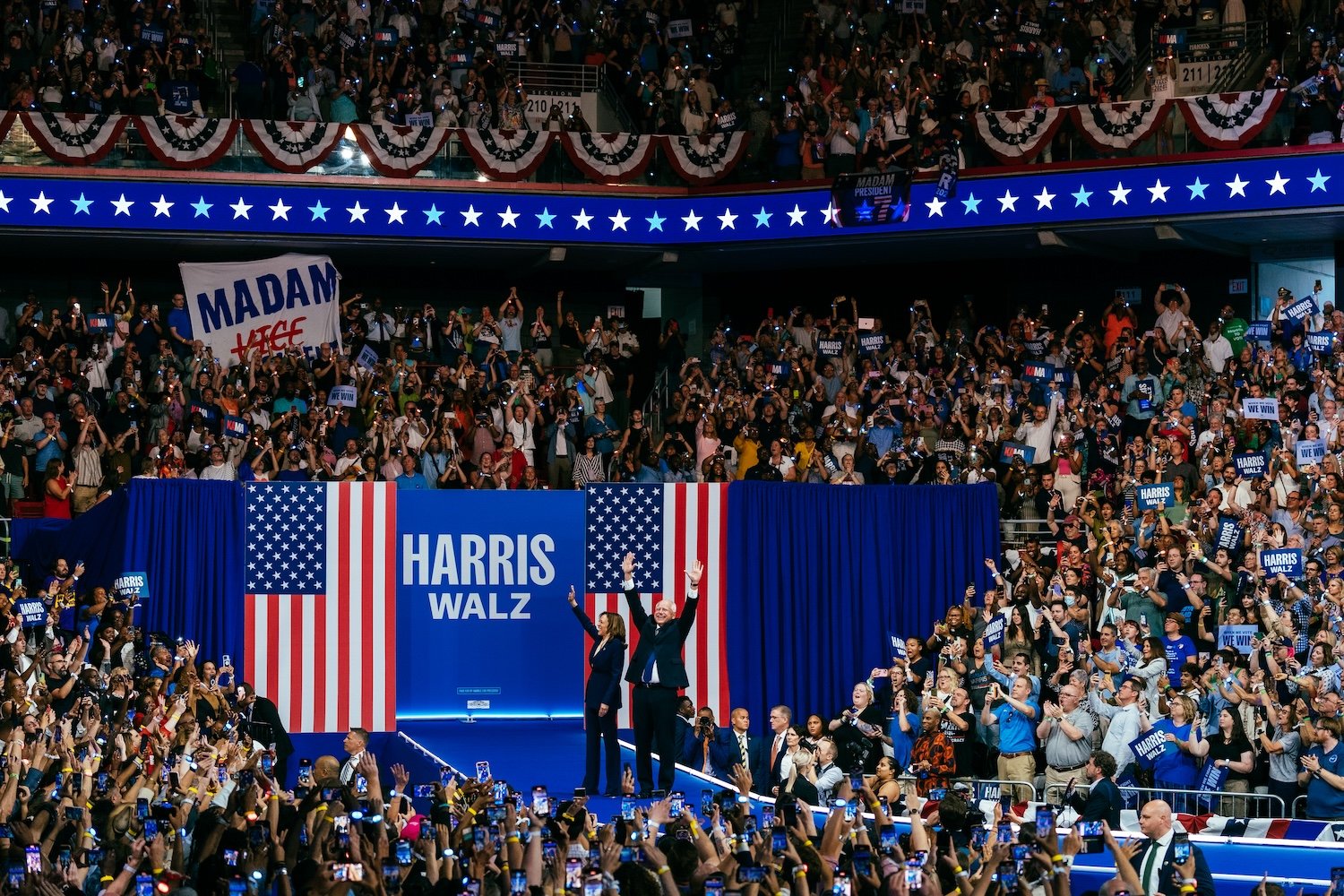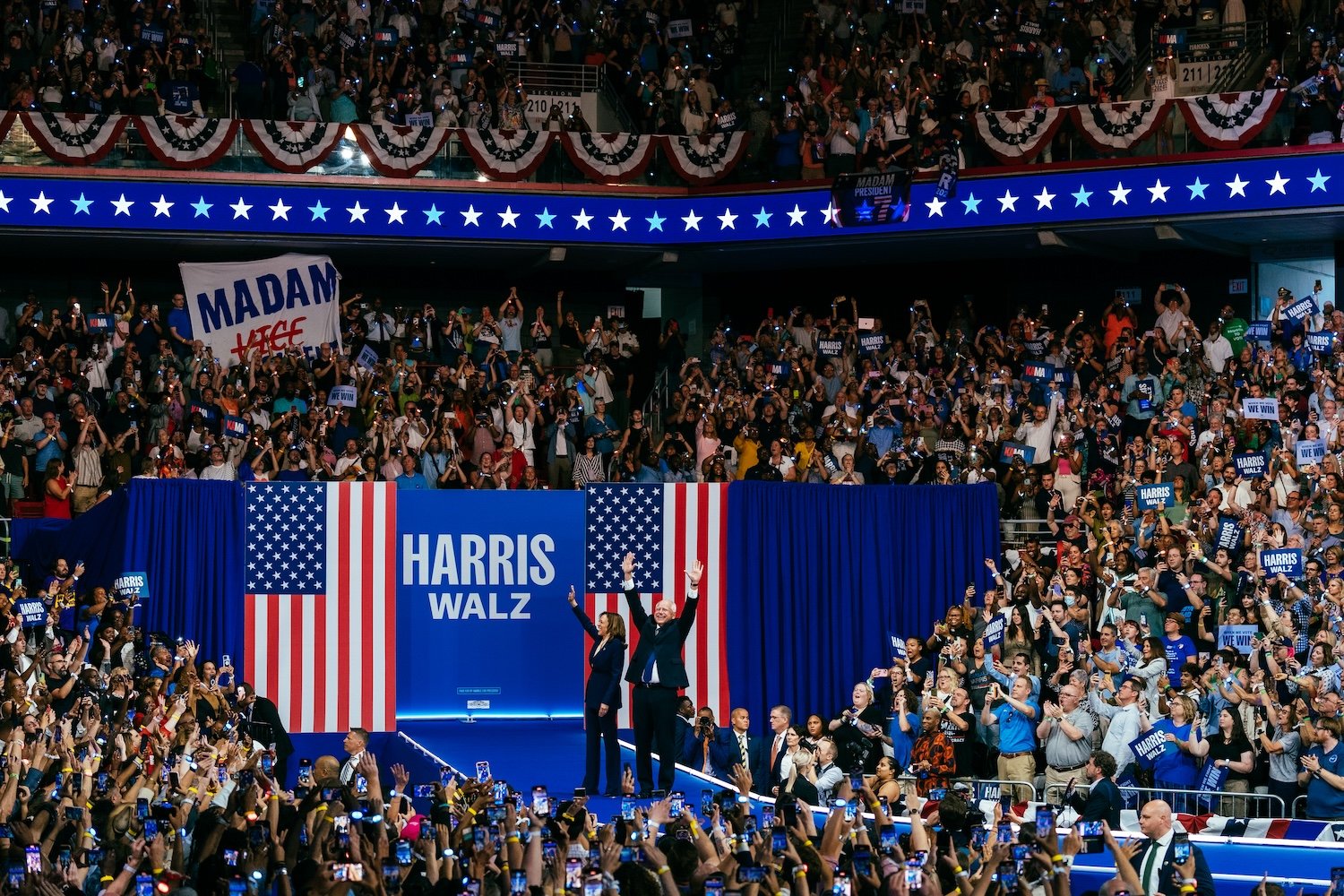| What’s Kamala Harris’s policy platform? Does it differ from Joe Biden’s? If so, how does it differ? These remain relevant questions and the Harris campaign’s website still doesn’t provide anything in the way of answers.
In recent weeks there’s been discussion about whether anything will change in relation to Israel/Palestine. What’s Harris’s foreign policy vision?
In the Boston Review Yale professor Michael Brenes takes a close look at Harris national security advisor Philip Gordon to glean some possible clues. In 2020 Gordon published Losing the Long Game: The False Promise of Regime Change in the Middle East, a book that gives us some important insight into his thinking.
Brenes: “Gordon presaged Obama’s foreign policy. Obama felt that U.S. foreign policy had lost its focus in Iraq, that its misadventures were symptoms of overstretch—in short, that the United States had not curated its conflicts well. The president outwardly defined his foreign policy around limits, about dealing with the “world as it is.” Four months into his first term, Obama said “I do know with certainty that we can and will defeat Al Qaida,” but he avoided using the term “war on terror,” instead describing “a series of persistent, targeted efforts to dismantle specific networks of violent extremists that threaten America.” Losing the Long Game shows that Obama did not always live up to this vision of limits for U.S. policy in the Middle East. In Gordon’s narrative, Obama is part of the problem and hardly exceptional.”
Brenes notes that Gordon would be a departure from fellow National Security Advisor Jake Sullivan, who “has transformed the role unlike any figure since Henry Kissinger.” He doesn’t always believe that the United States falls on “the right side of history” like Sullivan does.
Here’s Brenes speculating on what the Gaza approach would be:
Gordon wrote in 2015 that it was impossible for Israel to “remain a secure Jewish and democratic state—at peace with its neighbors—if it tries to govern the millions of Palestinians in Gaza and the West Bank.” But nearly a year into Israel’s response to the October 7 attacks—with tens of thousands of Palestinian civilians killed, Gaza totally devastated, and some Israeli leaders declaring intent to reoccupy Gaza permanently—that is where Israel is headed now.
If Gordon adhered to his conclusions in Losing the Long Game, a Harris administration would work to avoid wider wars in the Middle East. That would mean rejecting moves to escalate the war—whether by Israel, Hamas, or Hezbollah—and prioritizing a political resolution. It would mean not just telling the Israelis that winning a war on terrorism is futile but actively discouraging Israel’s own self-described war on terror. All this would require the United States to change course from its current direction of preparing for regional conflict and giving unconditional material and ideological support to Israel’s war plans.
Brenes notes that a potential shift is open to question since Harris is played it both ways rhetorically.
Whether such change is in the cards is uncertain, but some movement seems possible. Harris has publicly opposed an arms embargo against Israel and refused to repudiate Biden’s Israel policy, but she has privately criticized it. She has talked over protesters at campaign events but has also called the destruction and death in Gaza a “catastrophe.” Gordon has used similar language, as he believes a two-state solution must remain the “ultimate goal,” as he put it in a speech delivered in Israel at the Herzliya Conference on Israeli security in June—where he also did not refrain from calling “settlement expansion, settler violence and other destabilizing activities on the West Bank . . . counterproductive to peace.”
The thrust of Gordon’s remarks is that Israel’s current war now runs contrary to its own “long-term security” and the stability of the Middle East. “The reality,” he said, “is that there is no enduring defeat of Hamas without a credible governance and security alternative in Gaza—as we in the United States learned the hard way from our experiences in Iraq and Afghanistan.” But the government of Benjamin Netanyahu does not see it that way, and a month after the Herzliya Conference, just before Netanyahu’s trip to the United States, the Knesset voted overwhelmingly for a resolution stating that Palestinian statehood would pose an “existential threat” to Israel. What actions a Harris administration, with Gordon’s counsel, might take in the face of this intransigence remains to be seen.
DNC and Palestine
The DNC, and its refusal to let Palestinians speak on stage, continues to generate discussion.
Here’s Uncommitted National Movement Abbas Alawieh on the convention:
“In a clear mistake and unfortunately discriminatory decision, Democratic Party leadership missed a historic opportunity to have delegates and the American public learn from the insights, perspective, and expertise of a Palestinian American speaker. It’s their loss, not ours. With the historic action our delegates took inside and outside the DNC, we amplified Palestinian voices in unprecedented ways, proving that our strongest power doesn’t lie within the convention halls but with the people.
“Our push for a Palestinian American speaker was but one small request as part of a larger strategy to save lives and help save our democracy. That push ultimately allowed us to communicate to millions of people about the hypocrisy embedded within our party, and it allowed us to lift up our common sense demands for an arms embargo, for equal rights, and for freedom for all.“
Americans for Justice in Palestine Action (AJP Action) put out a statement on Harris’s hawkish DNC speech:
“In her speech, Vice President Harris reiterated her call for a ceasefire; however, ten months into an active genocide—where much of the devastation has already occurred—her administration’s continued support for the Israeli regime with financial and military aid shows a disturbing lack of seriousness in achieving a ceasefire and stopping the ongoing slaughter of Palestinians. Her statement, devoid of any real substance or political strategy, is nothing new—many U.S. politicians have been calling for a ceasefire all year without taking proactive steps to back up their words.”
“What we heard last night was not a genuine call for peace, but rather an attempt to appease Israel and the zionist lobby in the United States. By failing to address the urgent need for a substantive change in U.S. policy towards Palestine, Vice President Harris’s remarks only further emboldened the Israeli regime to continue its ethnic cleansing and occupation of Palestinians. There is no accountability being put into place—only a deepening of U.S. complicity in the ongoing atrocities.“
Here’s USPCN National Chair Hatem Abudayyeh on the speech: “Harris presented nothing that would prompt Arabs, Palestinians, and our supporters to say anything different than we have all week, which is that her policies are the same as the policies of Biden, so we must continue to demand that the U.S. and Harris implement an arms embargo and stop sending weapons and all other aid to Israel.”
Abudayyeh on the week of protests in Chicago:
“We are extremely happy with not only the turnout, but the qualitative goals that we set and accomplished. We’ve been saying for months that the whole world will be watching, and it was. It watched people – Black, Latino, Asian, Native American, African, South Asian, white, etc. – representing all different issues, such as immigrant rights, the movement to stop police crimes, Black liberation, women’s and reproductive rights, workers’ rights, environmental rights, and so many others, project their stories and problems with the Democratic Party, but also say strongly and clearly that the central issue of these protests is Palestine, and in a unified voice, they all said, ‘End all U.S. aid to Israel, stop the genocide, and free Palestine!’”
“The other thing we said is that this was going to be the event of the season, and it was,” Abudayyeh added. “The exciting, newsworthy part of the week wasn’t what happened at the United Center, though. It was what we did in the streets, which was a historic accomplishment that folks will be talking about for years.” |



